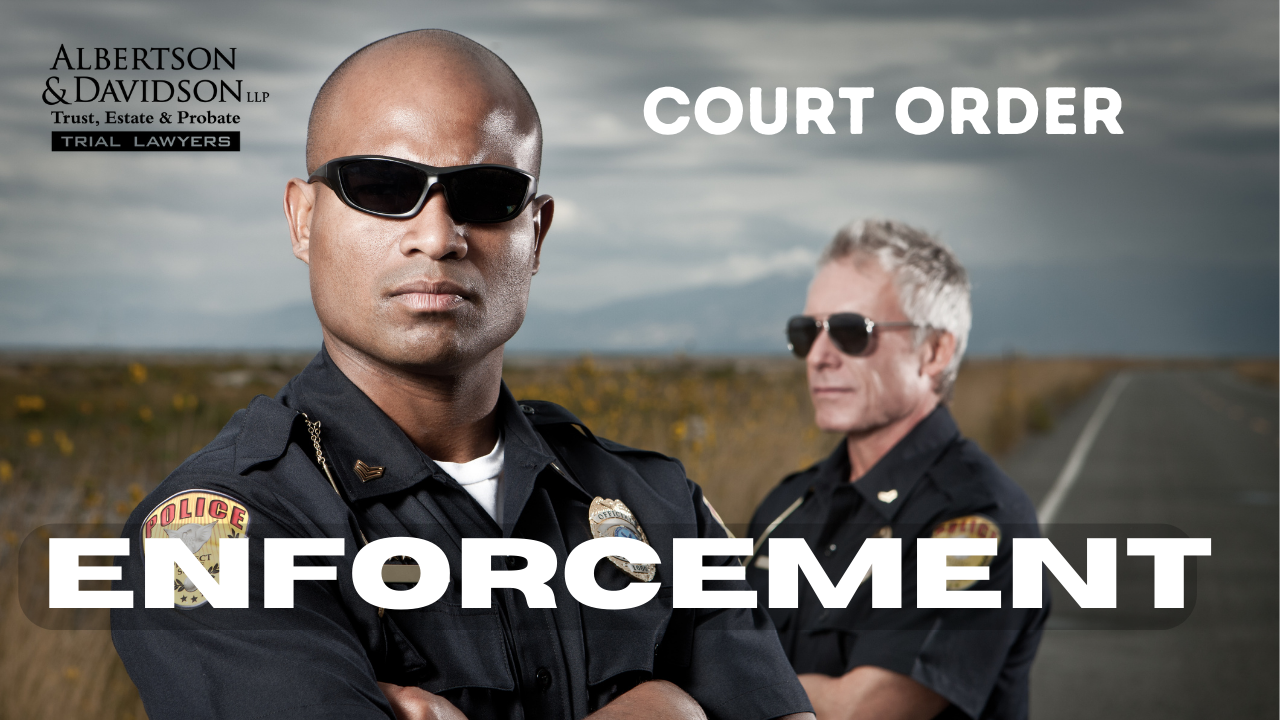
Suppose you have fought a long, hard fight in court and taken your Trustee all the way to trial. You win the trial, obtain a court order, and now the Trustee refuses to comply with the terms of the court order. What do you do?
There are several options you must enforce a court order or a judgement. Keep in mind, that orders and judgements are different things. The court in your case may issue orders based on what you requested in your petition, or it may issue a judgement or both.
Court orders can be powerful tools because they can apply not just to your Trustee, but also to other non-parties. For example, if there was money frozen in an account at a bank, then a court order would require the bank to release the funds according to the order. That’s a powerful tool.
Orders Can Also Be Recorded With The County Recorder’s Office
For example, if the court issues an order transferring real estate from the Trustee to the beneficiaries, and if you include the proper legal description in the order, then you can simply record the court order to complete the real property transfer. Finally, you can also bring a motion to enforce an order and ask the court to hold a party in contempt of court for failing to follow the terms of the order. That can also be a powerful tool to force a party to act or suffer the consequences of being held in contempt of court.
Judgements Also Have a Host Of Powerful Options
With judgement, you can do things like garnish wages, record judgement liens, and even force the sale of assets to raise cash to pay the judgement. Of course, enforcing judgements and orders requires additional court action. And there is an entire legal specialty of lawyers, called collections lawyers, who know the ins-and-outs of collecting on judgements. It never hurts to consult an expert when it comes to enforcing your judgement.
The bottom line is that orders and judgements can be enforced. You must work with your lawyer, and maybe also consult a collections lawyer, to fully understand your options. And the burden is on you to undertake the actions required to enforce an order or judgement. But it can be done.
